Ebola outbreak: Asky bans flights in West Africa
- Published
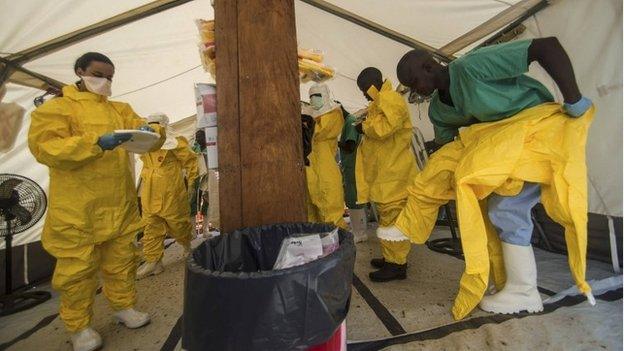
Health workers are battling to contain the deadliest outbreak of Ebola
A major West African airline has stopped flying to Liberia and Sierra Leone amid growing concern about the spread of the deadly Ebola virus.
Asky said it took the decision to keep "its passengers and staff safe during this unsettling time".
The number of people killed by the virus in West Africa has now reached 672, according to new UN figures.
In Sierra Leone, the doctor who led the fight against Ebola, Sheik Umar Khan, has died of the disease.
Government officials hailed Dr Khan, 39, as a "national hero".
The government disclosed last week that he was being treated for Ebola and had been quarantined.
His death follows that of prominent Liberian doctor Samuel Brisbane at the weekend.
Police deployed
Ebola kills up to 90% of those infected, but patients have a better chance of survival if they receive early treatment.
It spreads through contact with an infected person's bodily fluids.
The outbreak - the world's deadliest to date - was first reported in Guinea in February. It then spread to Liberia and Sierra Leone.

Liberia tied Independence Day celebrations on 26 July to efforts to create more awareness around Ebola
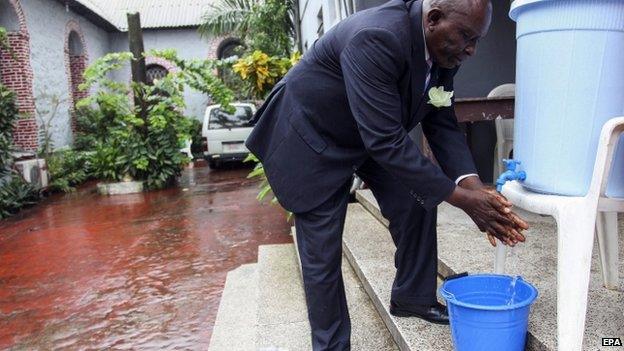
Greater emphasis is being placed on hygiene in an effort to contain the virus
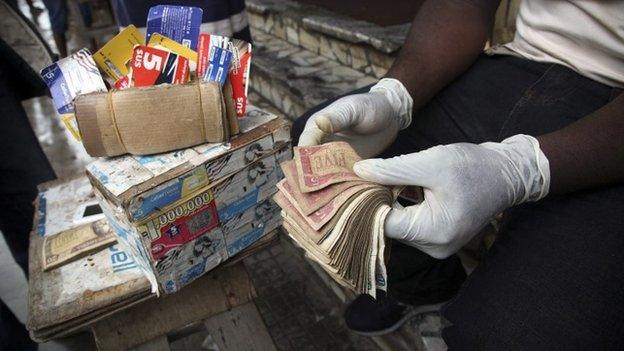
People have also been urged to wear protective gloves
Asky is the second airline, after Nigeria's largest airline, Arik Air, to ban flights to Liberia and Sierra Leone.
It had not halted flights to Guinea, but passengers departing from there would be "screened for signs of the virus", Asky said.
Last week, Nigeria, Africa's most populous country, reported its first case - that of Liberian finance ministry official Patrick Sawyer who flew to the main city, Lagos, in an Asky flight.
Liberia has deployed police officers at the international airport in the capital, Monrovia, to ensure passengers are screened for symptoms of Ebola.
Football ban
"We have a presence of the police at the airport to enforce what we're doing,'' said Binyah Kesselly, chairman of the Liberia Airport Authority.
"So if you have a flight and you are not complying with the rules, we will not allow you to board.''

Ebola since 1976
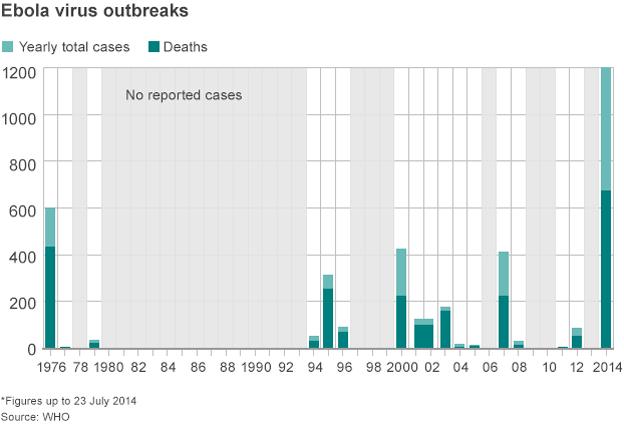
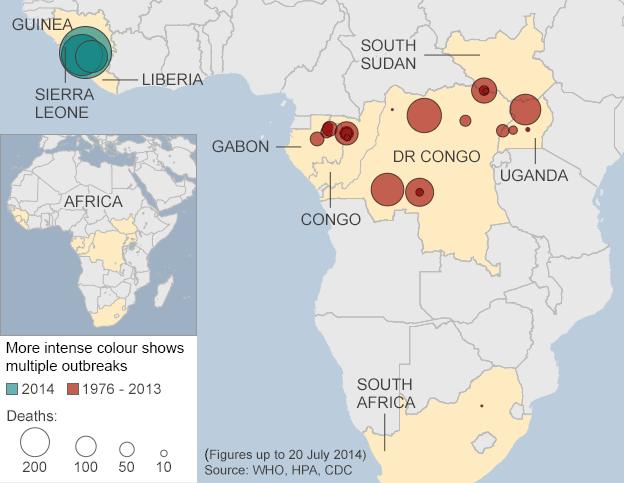

Most border crossings in Liberia have been closed to contain the outbreak and affected communities are being quarantined.
Liberia has also suspended all football activities in an effort to control the spread of Ebola.
"Football being a contact sport - people are sweating - they do contact each other, and that could result in contracting the disease," the president of its football association, Musa Hassan Bility, told the BBC.
"It also has to do with the fans because whenever there is a game, a lot of people come together and we want to discourage gathering at this point," he said.
The association had also told football governing body Fifa to cancel trips to Liberia scheduled for August and September because "we do not want the life of the Fifa president [Sepp Blatter] to be exposed to this disease", Mr Bility said.
In a statement, external, the UN World Health Organization (WHO) said that 1,201 Ebola cases had been reported in Guinea, Liberia and Sierra Leone.
Of the 672 deaths, the highest number was in Guinea with 319, followed by Sierra Leone with 224 and Liberia with 129, it said.
The current outbreak is the deadliest since Ebola was discovered in 1976
The BBC's Jonathan Paye Layleh in Monrovia says that public awareness campaigns around Ebola have been stepped up in the city.
Many people are worried about the outbreak, and fewer people are going to restaurants and entertainment centres, he says.

Ebola virus disease (EVD)
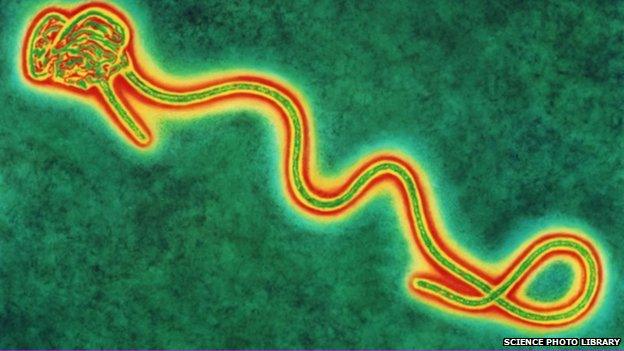
Symptoms include high fever, bleeding and central nervous system damage
Fatality rate can reach 90%
Incubation period is two to 21 days
There is no vaccine or cure
Supportive care such as rehydrating patients who have diarrhoea and vomiting can help recovery
Fruit bats are considered to be virus' natural host